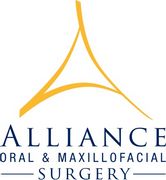
If your doctor or dentist just told you you need jaw surgery, you likely have a lot of questions. There are a number of reasons why a patient might need this type of oral surgery, so expectations can vary. Here is what to expect during and after surgery, the different types of surgery available, and answers to other questions you might have.
What You Need to Know About Jaw Surgery
Why might you need jaw surgery?
The most common reason is to correct an imbalance in the alignment of your upper and lower jaws. This can happen if your teeth do not fit together correctly, or if one side of your face appears noticeably different from the other. Jaw surgery can also help improve your ability to chew and speak, and can alleviate pain in the jaw joint.
What should you expect before surgery?

You will likely meet with a team of specialists, including an oral surgeon, orthodontist, and dentist. They will work with you to develop a treatment plan that is tailored to your specific needs. You may also need to have X-rays, photos, and models of your teeth made. Once everything is finalized, you will be given a date for your oral surgery.
What happens during the procedure?
There are different types of jaw surgery, but the most common is called osteotomy. This involves cutting and repositioning the bones in your upper or lower jaw. In some cases, metal plates and screws may be used to hold the bones in place while they heal. The entire surgery usually takes between two and four hours, although this will vary depending on the complexity of the procedure.
What should you expect afterward?
After jaw surgery, you will likely experience some pain and swelling. You will also need to eat soft foods for a few weeks while your mouth heals. Most people need to stay in the hospital for one to three days after surgery, and it can take four to eight weeks for full recovery. During this time, you may need to take pain medication and eat a soft food diet.
Will your appearance change?
Jaw surgery can change the shape of your face, but the results vary depending on the type of surgery you have. In most cases, the changes are subtle and not immediately noticeable. However, some patients may notice a difference in their facial proportions or symmetry after surgery.
If you need compassionate, professional oral surgery, put your trust in Alliance Oral & Maxillofacial Surgery. They have cared for residents throughout North Fort Worth and Tarrant County, TX since 2009. They perform a wide range of procedures, including wisdom teeth removal, dental implant procedures, and even bone grafting. Visit them online to learn more about their services, or call (817) 741-2200 to schedule a consultation today.
About the Business
Have a question? Ask the experts!
Send your question

